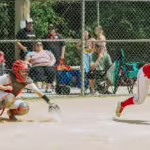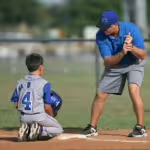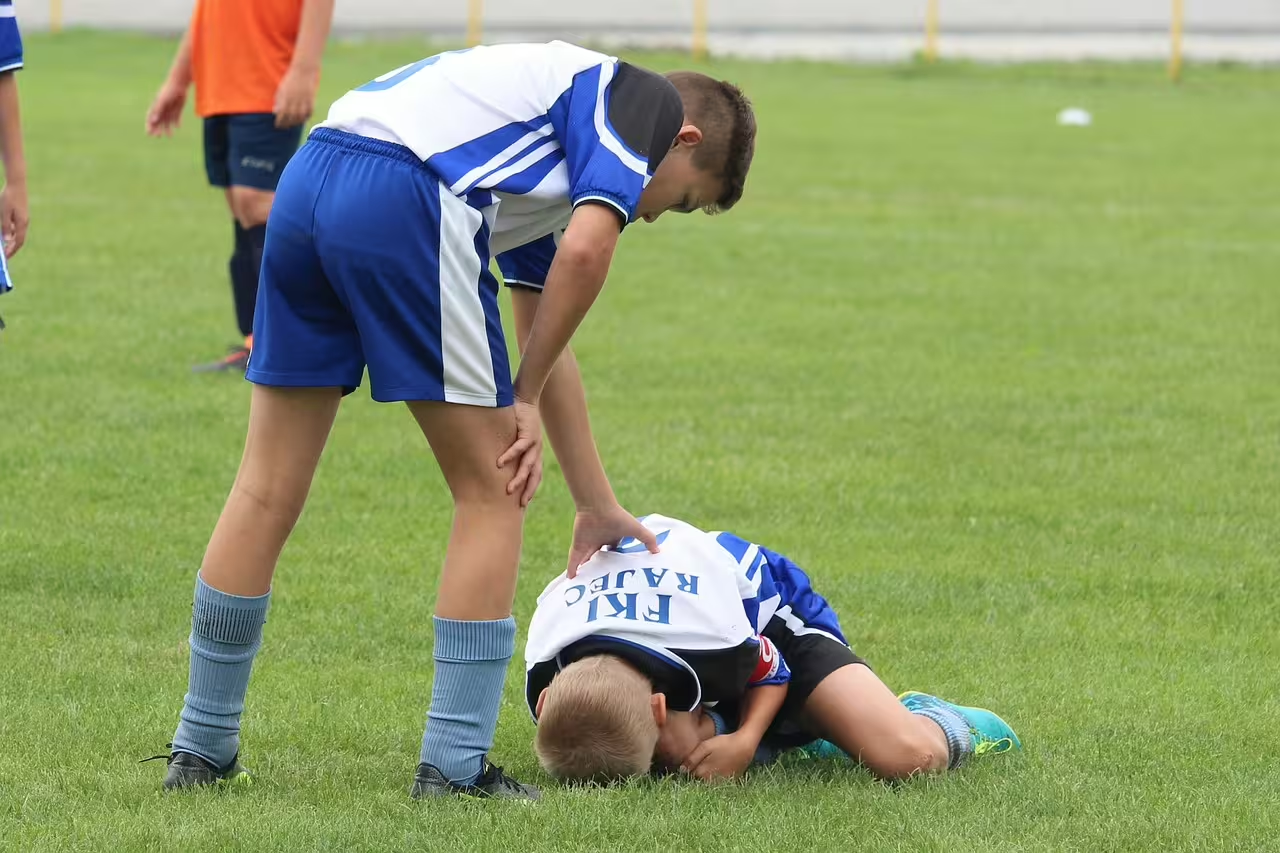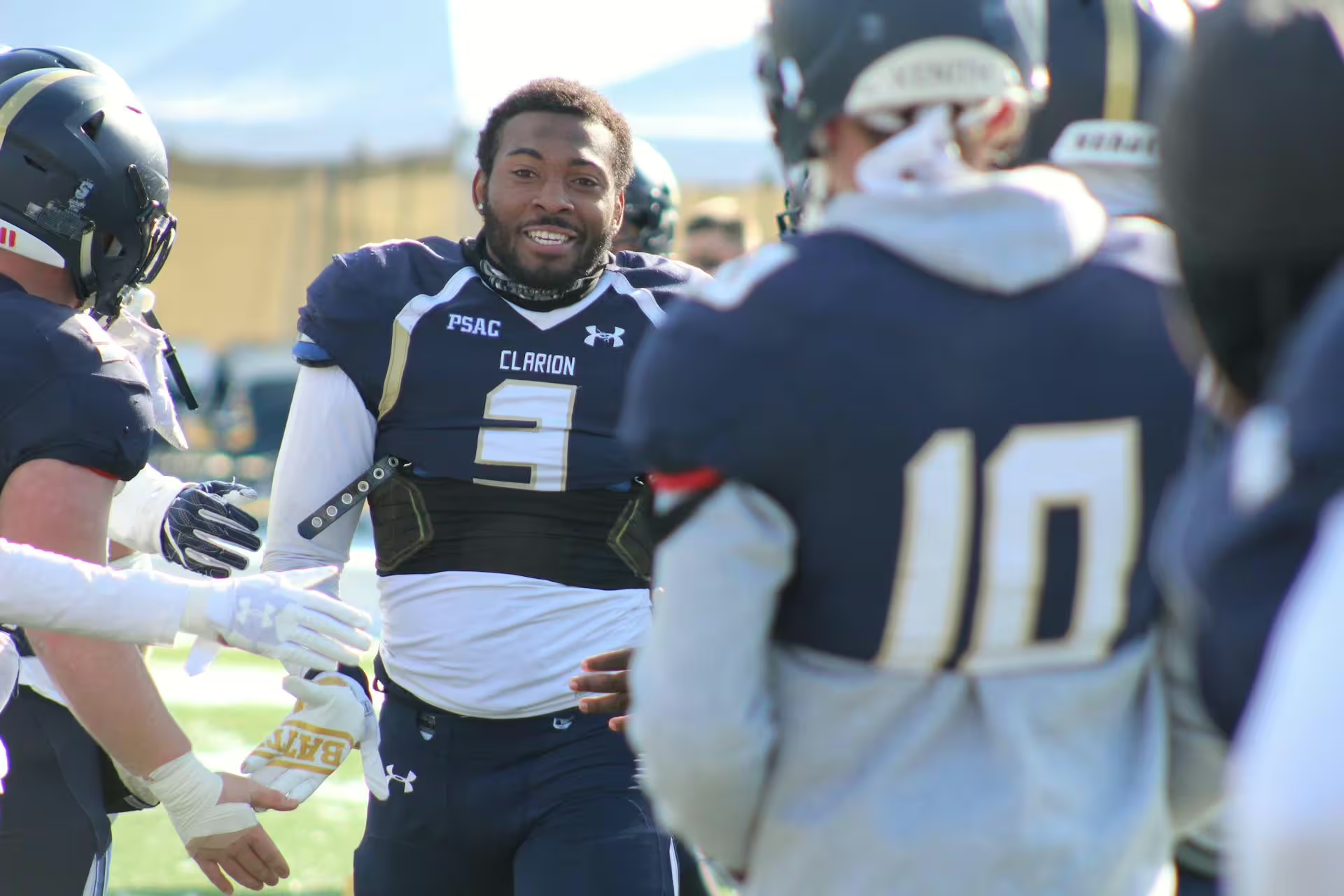Life can be difficult at times. Financial hardship, physical illness, and every other darn thing that can go wrong in a person’s life, can sometimes make even something as youth sports, a problem without an obvious solution. That all being said, every child deserves the opportunity to play sports, regardless of their abilities or their circumstances. That is one of the reasons that this website exists, to give parents the tools to involve their children in sports, no matter what their situation of difficulties might be.
Behavioral science has proven that participation in athletics can help children from all walks of life to develop physical strength, social skills, confidence, and a sense of belonging. This is especially relevant for children with special needs. Unfortunately, the costs associated with adaptive sports programs, specialized equipment, and training can be a challenge for many families. This is where we come in! There are, in fact, many scholarships and grants out there that can help cover these expenses, ensuring that children of all abilities can participate in the sports they love.
In this article, we will guide help parents navigate the multitudinous financial assistance options available for young athletes with special needs. From national organizations to local community grants, together, we will explore the various resources available to make sports more accessible and affordable for each and every kid who wants to play!
Why Sports Matter for Special Needs Athletes
It is common knowledge by now, especially if you’ve been reading these articles for a while, that engaging in sports provides numerous benefits for children with disabilities. Sports activities, and indeed, any physical activities that involve other children, fosters physical, social, and emotional development. At the same time, these endeavors promote independence and offer children a bevy of new opportunities for personal achievement.
Physical Development
Participation in sports helps improve a young person’s coordination, muscle strength, flexibility, and overall fitness. In this day and age, where chemical additives, excess sugar, and hormonal imbalance contributes greatly to childhood obesity, anything that helps a child to move on a regular basis is bound to be helpful in some way. Obesity can also lead to a host of related health concerns, such as cardiovascular disease and diabetes.
Regular physical activity enhances motor skills, balance, and endurance, which are not only essential for mobility and daily tasks, they are often areas where children with specific disabilities struggle. Additionally, adaptive sports, which tend to be tailored to different levels of physical and mental ability, ensure that kids can develop their physical potential in a safe and structured environment.
Social Skills
Team sports and similar group activities create new opportunities for children with disabilities to interact with their peers. In these interactions, these children can learn to develop essential social skills such as teamwork, cooperation, and communication; all the things one needs to succeed in a society like ours. In addition, being part of a team helps kids develop friendships, experience camaraderie, and build trust in other people. This type of social interaction is crucial for improving a child’s confidence and reducing any intrinsic feelings of isolation they might feel as a result of their disability.
Emotional Well-being
Sports and most physical exercise, in general, have been proven to help boost dopamine hormones in the human brain. These hormones are what makes us feel pleasure, so it makes sense that an excess of these “feel” good” chemicals can contribute significantly to mental and emotional well being. In the same vein, sports can boost self-esteem and provide children with a sense of accomplishment.
By setting and achieving personal goals, whether they are big or small, sports can instill a sense of pride and resilience in a young person. Additionally, regular participation in physical activities releases endorphins, which help reduce stress, anxiety, and depression, contributing to a more positive mindset and outlook on life.
Independence and Problem-Solving
Sports encourage children with disabilities to face their challenges head on, helps them to be more decisive about their choices, and teaches them to persevere through obstacles. Overcoming difficulties through playing sports fosters independence and strengthens problem-solving abilities. Skills such as these might seem trivial to adults, who have mostly worked through their problems, but they extend well beyond the boundaries of the sports field.
Moreover, developing these life skills will positively impact their everyday lives in many unforeseen ways, ultimately increasing their ability to handle tasks on their own. As parents of children with disabilities, the idea of their independence can be frightening and uplifting in equal measure. We want them to be able to do things on their own and sports can help them get there.
Opportunities for Achievement
Participation in sports provides children with motivation, mainly by having them engage in competitions and tournament. At the same time, parents and coaches can help teach them the value of skill development and how getting better at even the littlest things can contribute to a better future overall. Through adaptive sports leagues, Paralympic events, or school teams, children with disabilities can learn to set goals, work towards improvement, and celebrate their achievements at every milestone.
When we take all of these advantages into account, it becomes clear that having access to sports is crucial for children with special needs. Sadly, many families face financial barriers, making it difficult for them to afford the specialized equipment, training, or travel expenses associated with their involvement. Fortunately, financial assistance through scholarships and grants can help bridge this gap, making sports accessible to all kids and families regardless of their financial situation.
Understanding Scholarships vs. Grants
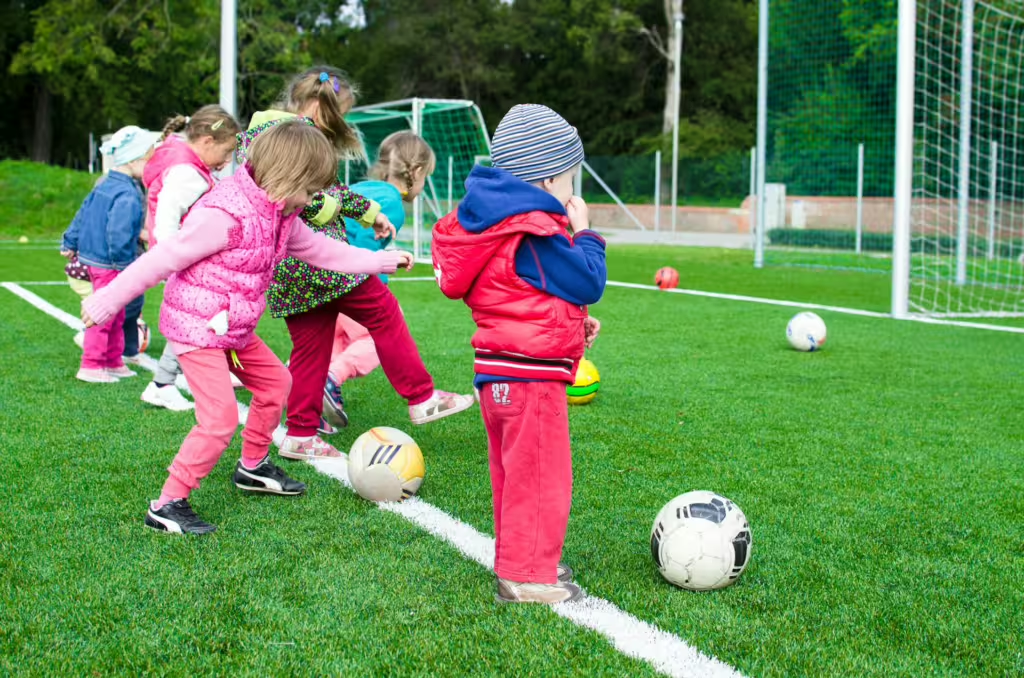
Before diving into available resources, it’s important that parents understand the difference between scholarships and grants:
Scholarships: These are typically awarded based on merit, need, or a combination of both. Scholarships may be provided by sports organizations, nonprofits, or educational institutions.
Grants: Grants, on the other hand, are usually provided by government programs, nonprofits, or foundations. They tend to be based on financial need or specific criteria. Most importantly, many grants do not require repayment.
Both options can significantly reduce the many costs associated with participation in adaptive sports programs.
National Scholarship and Grant Programs
The Challenged Athletes Foundation (CAF)
The CAF Access for Athletes Grant is meant to provide financial assistance to individuals with physical disabilities. As with all the grants and scholarships represented here, it is specifically used for sports-related expenses such as equipment, travel, and training.
- Who Can Apply: Athletes with permanent physical disabilities can apply for this grant.
- What It Covers: Adaptive equipment, competition expenses, coaching, and training.
- How to Apply: Applications open annually on the CAF website for anyone who fits the criteria.
The Special Olympics
The Special Olympics is one of the most popular and successful special needs sports organizations in history, This organization has done a lot of good for athletes with intellectual disabilities. Therefore, it comes as no surprise that it offers various financial aid programs to help athletes with intellectual disabilities participate in sports.
- Who Can Apply: Athletes with intellectual disabilities.
- What It Covers: Training, travel, and participation fees.
- How to Apply: Interested parties can contact local Special Olympics chapters for available funding.
The National Sports Center for the Disabled (NSCD)
NSCD is a fairly large organization and it provides financial assistance for adaptive sports programs, particularly in outdoor and winter sports.
- Who Can Apply: Athletes with physical and cognitive disabilities can apply.
- What It Covers: Program fees, specialized coaching, and adaptive equipment.
- How to Apply: Parents and athletes who are of age can apply through the NSCD website.
The United States Association of Blind Athletes (USABA)
USABA provides scholarships and grants for athletes who are visually impaired. It allows them to pursuing competitive sports.
- Who Can Apply: Athletes with visual impairments.
- What It Covers: Travel costs, training, and competition entry fees.
- How to Apply: Applications are available on the USABA website for those who are in need of assistance.
Kelly Brush Foundation
The Kelly Brush Foundation provides grants that are meant to help athletes with spinal cord injuries obtain the adaptive sports equipment they need to participate.
- Who Can Apply: Athletes with spinal cord injuries.
- What It Covers: Adaptive sports equipment such as handcycles, mono-skis, and basketball wheelchairs.
- How to Apply: Apply through the Kelly Brush Foundation website.
Local and Community-Based Programs
Parents should remember that there are also a number of local organizations and community foundations that can help out as well. Many of these offer funding for special needs athletes. Some resources parents can explore include:
State Disability Sports Associations: Many states have programs that provide financial aid for adaptive sports.
YMCA and Community Recreation Centers: Some YMCAs offer scholarships for inclusive sports programs.
Local Nonprofits: Organizations such as the Boys & Girls Club or Easterseals may offer financial assistance.
School-Based Grants: Don’t be afraid to ask your child’s school! Some schools have funding to support students in adaptive sports programs.
Tips for Applying for Scholarships and Grants
Research Early
The best weapon that concerned parents have in their arsenal is time. This means researching programs early and applying in a timely manner. Remember, many programs have strict application deadlines, so it’s crucial that parents start researching grants and scholarships well before the sports season begins. Early research will not only allow you to explore multiple funding opportunities, it will help you to better understand the specific eligibility requirements for each program.
Some things to consider are that grants may be offered on a first-come, first-served basis; hence why being timely is so crucial. Additionally, starting early provides ample time for first-time applicants and parents to seek advice from coaches, therapists, or other parents who have successfully secured funding. To start, families should create a list of potential scholarships, noting deadlines and required documents to stay organized. Be sure to set reminders for submission dates so you don’t miss any opportunities.
Gather Required Documents
Most applications require supporting documentation, such as proof of disability, financial need, or letters of recommendation; so make sure you have all your ducks in order before you apply. Families should begin collecting these documents as soon as possible to avoid any last-minute stress. Medical records or doctor’s notes confirming the child’s disability may also be required, as well as financial statements proving income eligibility. If possible, letters of recommendation from coaches, teachers, or therapists can strengthen the application by highlighting the athlete’s dedication, perseverance, and the potential benefits they might glean from participation.
Write a Strong Personal Statement
Let your heart speak for itself. Some scholarships require a personal statement or essay explaining why the athlete deserves funding. Writing a compelling statement is essential but remember that it should focus on the child’s passion for sports, personal challenges, and their future goals. Don’t be shy about how much the sport means to you and your child. Emphasize how participation in sports positively impacts their physical, emotional, and social well-being. Be candid and share personal stories of resilience, determination, and achievements. These elements can make your application stand out above the crowd.
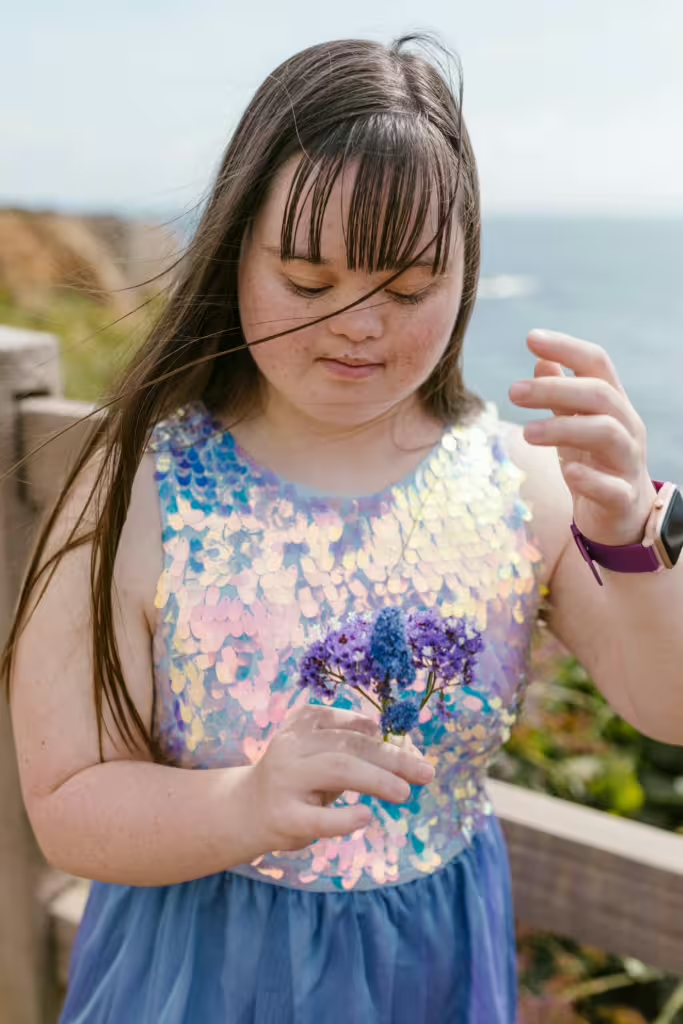
Apply to Multiple Programs
Since funding is limited, parents should hedge their bets in a way. This means applying to as many programs as possible in an effort to increase their child’s chances of receiving aid. Bear in mind that you can always say no if you are selected by more than one! There are likely plenty of other candidates waiting for their shot should you drop out of the race.
Follow Up
After submitting applications, parents should check in regularly with the organizations. This is to not only confirm receipt of the application but to inquire about the decision timeline.
Cultured Athlete Says…
As you can see, every child deserves a chance to participate in sports. Regardless of that child’s abilities or financial circumstances, they should be granted at least an opportunity to join…to try. It seems as though many people think the same way, which is why scholarships and grants for special needs athletes are available to those with the wherewithal to seek them. These grants can help families afford the costs associated with sports participation, ensuring that every kid has the opportunity to experience the joy and the many benefits of athletics. All parents need to do is avail themselves of the many resources that exist online to help them; including this very article!
Discover more from CulturedAthlete
Subscribe to get the latest posts sent to your email.


